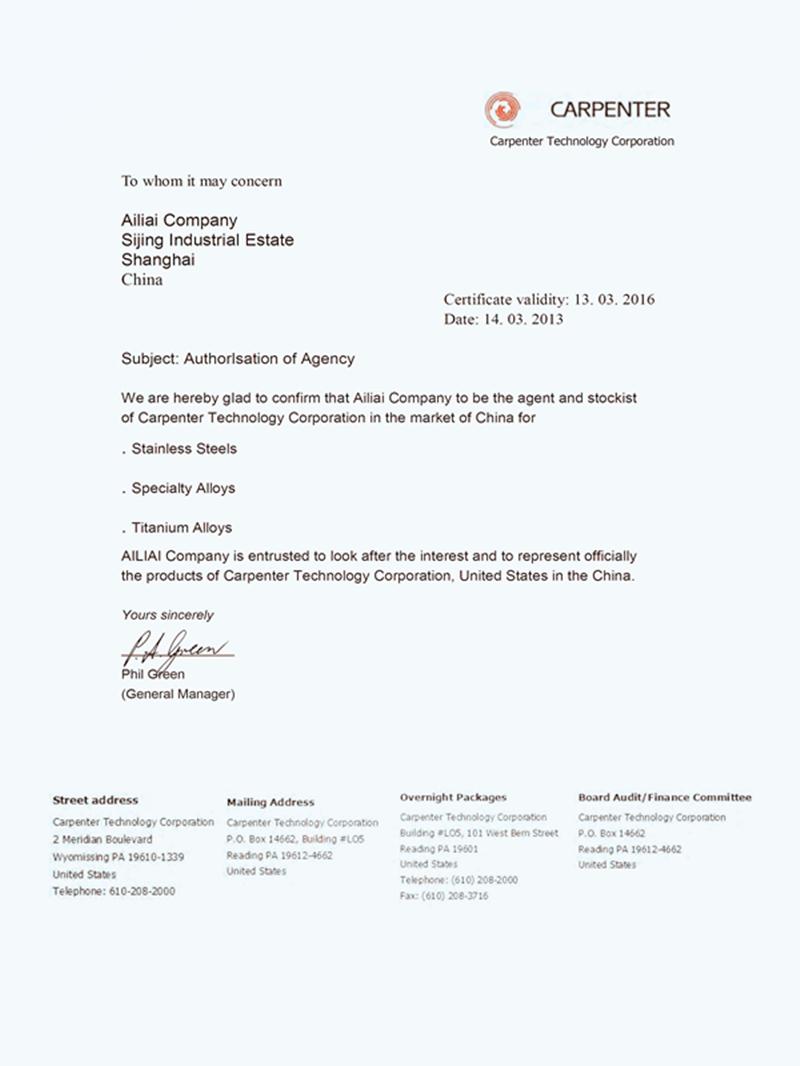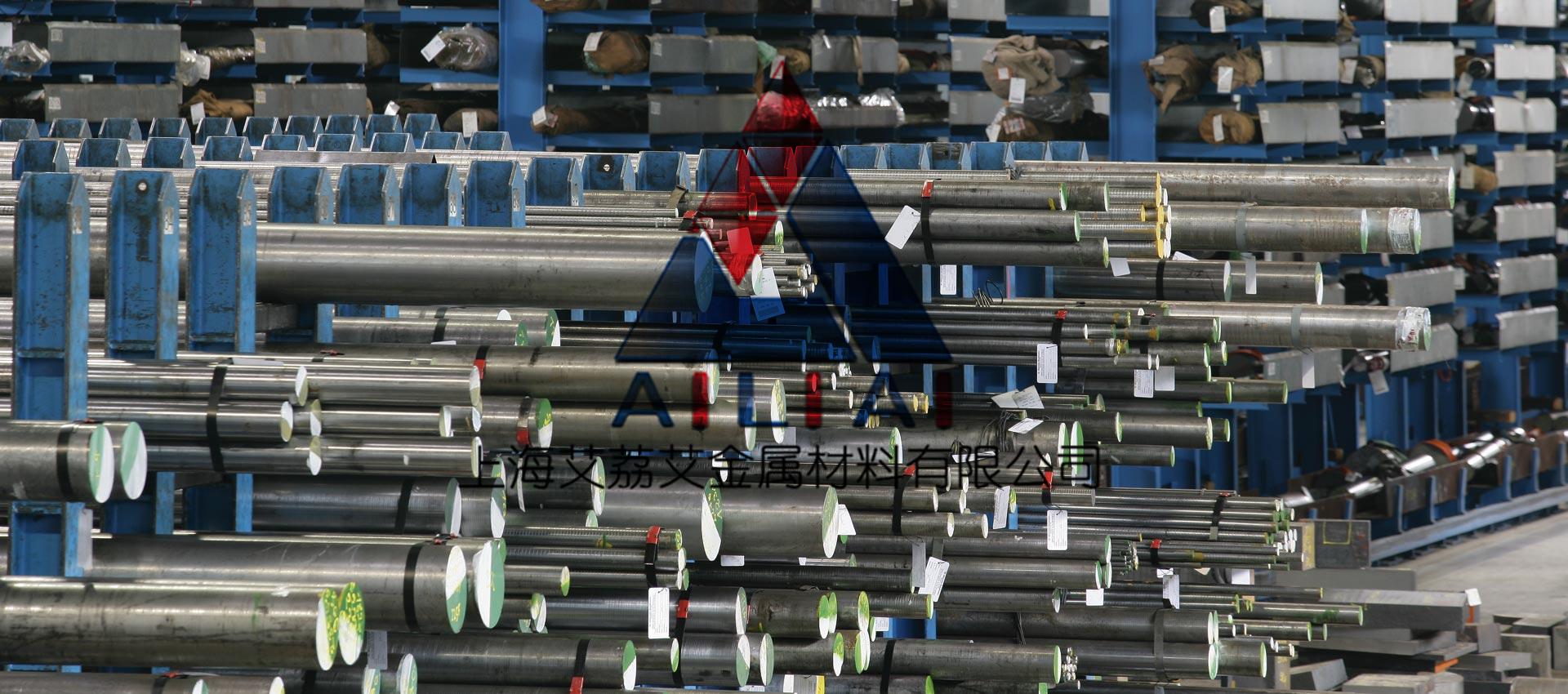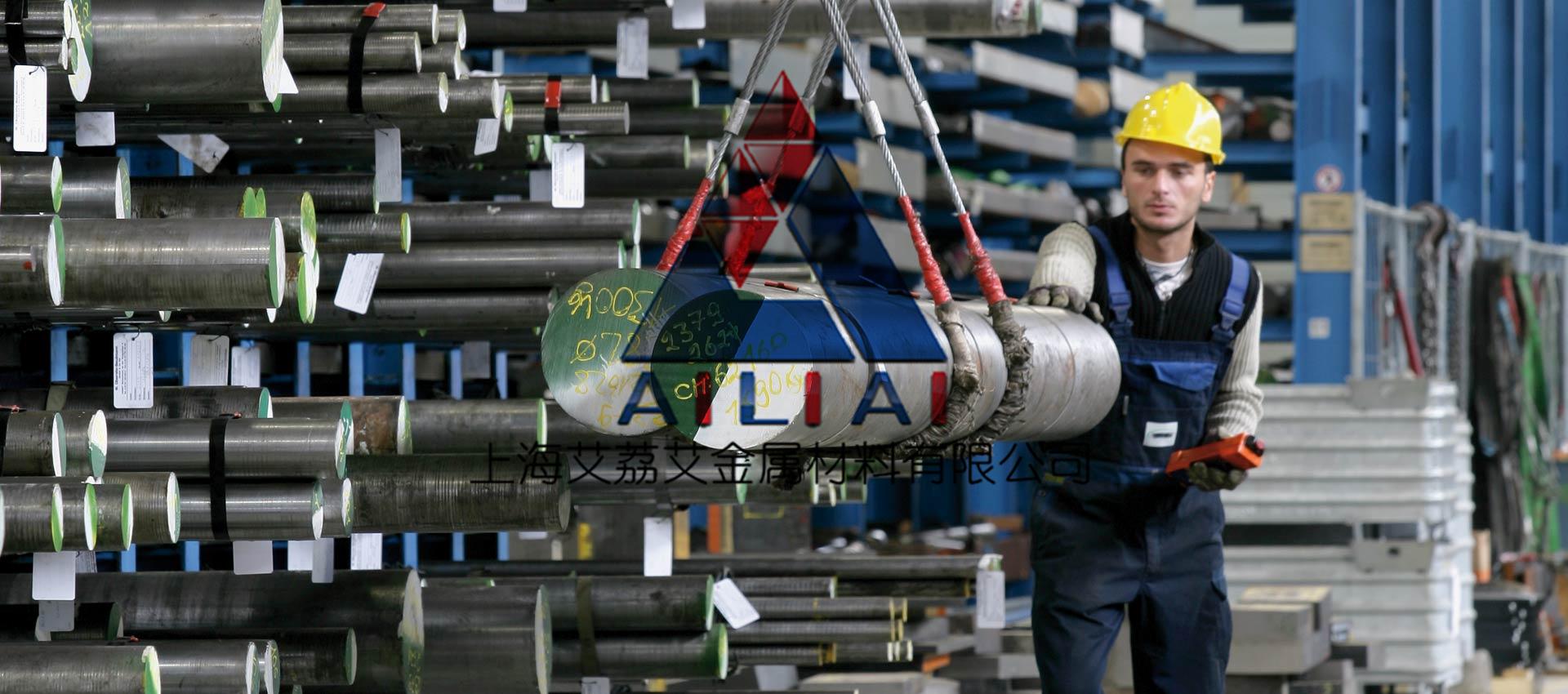产品分类
Chrome Core® 12-FM Alloy美国卡朋特Carpenter进口铬铁合金不锈钢化学成分力学物理性能
| Chrome Core® 12-FM Alloy |
| Type Analysis | ||||||||||||||||||||||||||
|
Single figures are nominal except where noted.
|
||||||||||||||||||||||||||
|
||||||||||||||||||||||||||
| General Information | ||
| Description | ||
|
Chrome Core® 12-FM alloy is in a family of controlled chemistry, chromium-iron alloys which are candidates for use in magnetic components where corrosion resistance superior to that of pure iron, low carbon steel and silicon-iron alloys is desired without the substantial decrease in saturation induction associated with 18% Cr ferritic stainless steels. |
||
| Applications | ||
|
Applications could include electro-mechanical devices requiring some degree of corrosion resistance, either in service or for extended shelf life without the need for protective coatings. |
||
| Corrosion Resistance | ||||||||||||||||||
|
Chrome Core 12-FM alloy exhibited no noticeable rusting in 95°F (35°C) - 95% relative humidity tests and have demonstrated corrosion resistance generally similar to 18% chromium ferric stainless steel in certain simulated alcohol-base fuel environments. |
||||||||||||||||||
|
Important Note:The following 4-level rating scale is intended for comparative purposes only. Corrosion testing is recommended; factors which affect corrosion resistance include temperature, concentration, pH, impurities, aeration, velocity, crevices, deposits, metallurgical condition, stress, surface finish and dissimilar metal contact.
|
||||||||||||||||||
| Properties | ||
| Physical Properties | ||
| Specific Gravity | ||
| -- | 7.66 | |
| Density | ||
| -- | 0.2770 | lb/in³ |
| Mean Specific Heat | ||
| -- | 0.1050 | Btu/lb/°F |
| Mean CTE | ||
| 77 to 122°F | 5.90 | x 10-6 in/in/°F |
| 77 to 212°F | 5.80 | x 10-6 in/in/°F |
| 77 to 392°F | 5.90 | x 10-6 in/in/°F |
| 77 to 572°F | 6.10 | x 10-6 in/in/°F |
| 77 to 752°F | 6.30 | x 10-6 in/in/°F |
| 77 to 932°F | 6.50 | x 10-6 in/in/°F |
| 77 to 1112°F | 6.70 | x 10-6 in/in/°F |
| Modulus of Elasticity (E) | ||
| -- | 29.0 | x 103 ksi |
| Electrical Resistivity | ||
| 70°F | 343.0 | ohm-cir-mil/ft |
| Curie Temperature | ||
| -- | 1350 | °F |
| Magnetic Properties | ||
|
Data for fully annealed 0.250-0.625 in. (6.35 to 15.9 mm) diameter bars tested on a Fahy permeameter per ASTM Method A 341. |
||
| Saturation Flux Density | ||
| -- | 17700.0 | G |
| Coercivity | ||
| -- | 2.50 | Oe |
| Magnetic Permeability | ||
| -- | 3100.0 | Mu |
| Residual Induction | ||
| -- | 12600 | G |
| Typical Mechanical Properties | ||
| Heat Treatment | ||
|
Due to its relatively low chromium content, Chrome Core 12-FM alloy will form austenite if heated to too high a temperature, and some hardening will occur if the austentized part is rapidly cooled. Consequently the best heat treatment for improved soft magnetic properties is to subcritically anneal. |
||
| Workability | ||
| Cold Working | ||
|
Chrome Core 12-FM alloy will withstand less cold working than the non-free machining versions and is not recommended for parts produced by large amounts of cold deformation. |
||
| Machinability | ||
|
Following are typical feeds and speeds for Chrome Core 12-FM alloy. |
||
| Additional Machinability Notes | ||
|
When using carbide tools, the surface speed can be increased between 2 and 3 times over the high-speed suggestions. Feeds can be increased between 50 and 100%. |
||
| Weldability | ||
|
Chrome Core 12-FM alloy is not recommended for welding. |
||
| Other Information | ||||||
| Forms Manufactured | ||||||
|
||||||


